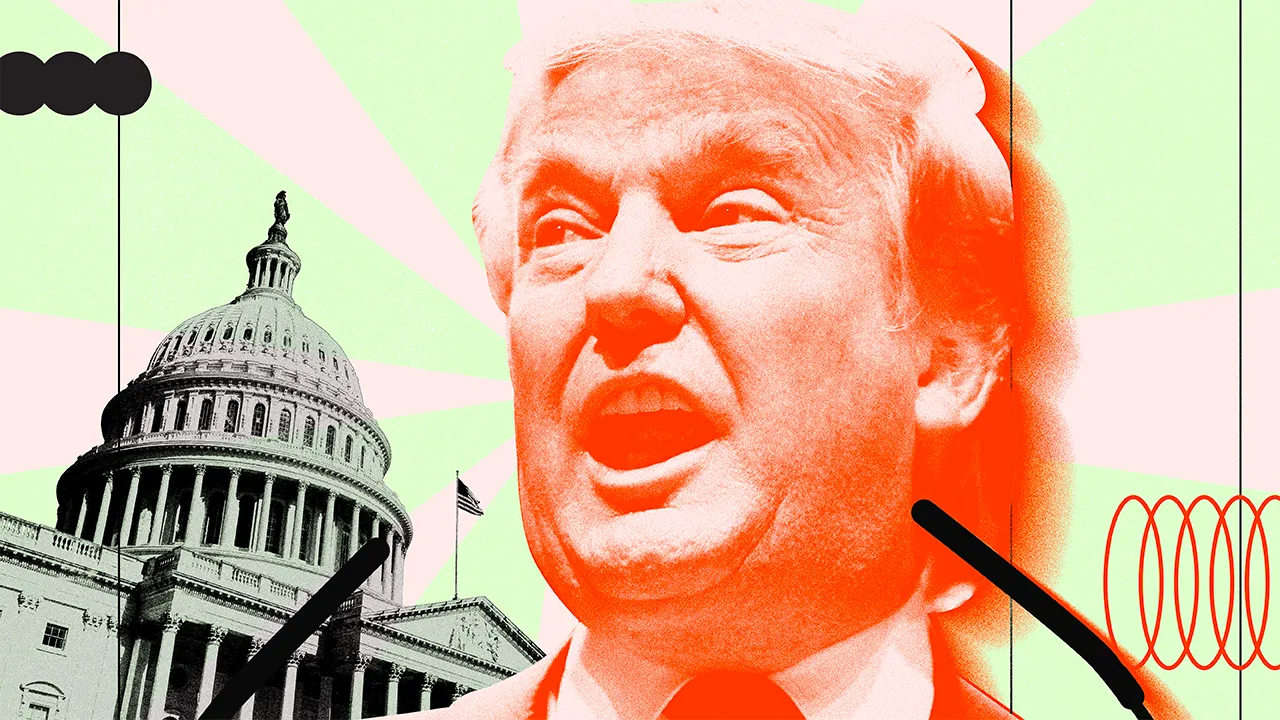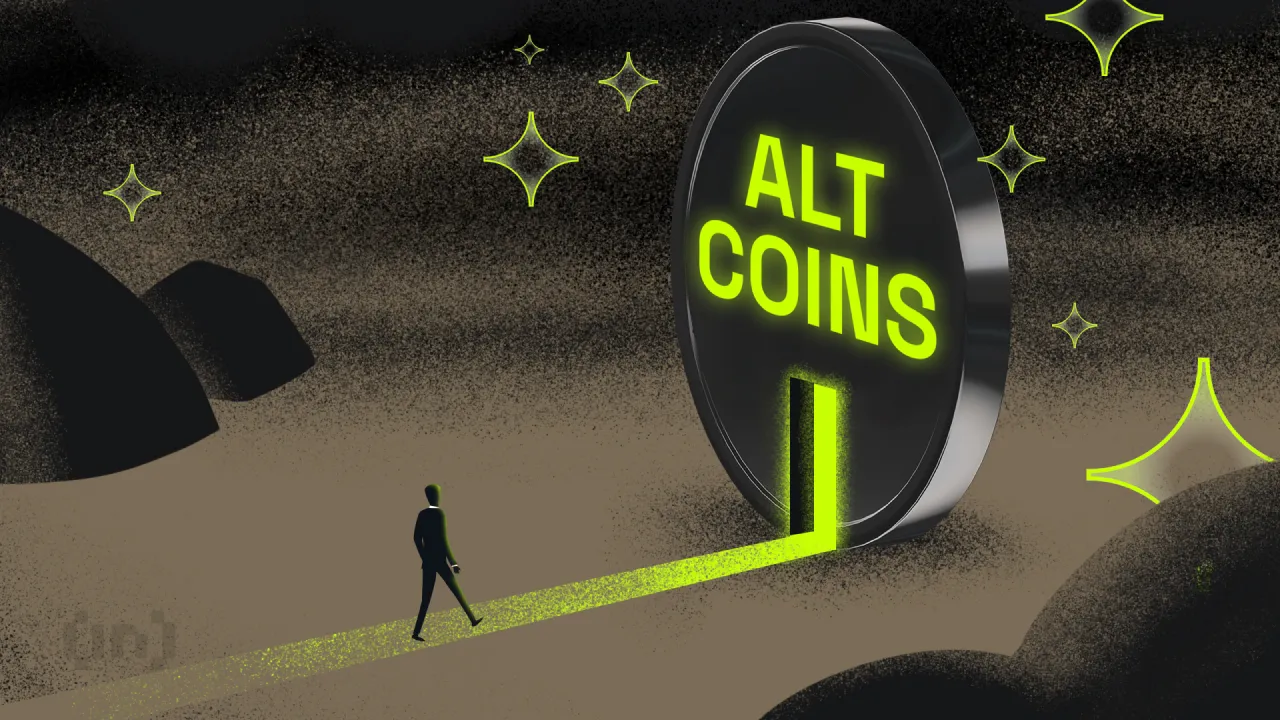Regulation
GameStop Short Seller Andrew Left Deleted X Posts Emerge Amid Lawsuit

Andrew Left, a prominent short seller known for his role in the GameStop trading frenzy, is currently facing serious legal trouble from the U.S. Securities and Exchange Commission (SEC). Now, his deleted posts on the social media platform X (formerly Twitter) have resurfaced in a Justice Department indictment. Moreover, the indictment accuses Left of market manipulation and lying to investigators. They also questioned the legality of his past stock commentary and trading practices.
Prosecutor Arguments In GameStop Seller Andrew Left’s Case
Andrew Left and his research firm, Citron Research, gained significant attention during the GameStop short squeeze in early 2021. Left, who had taken a short position on GameStop, publicly criticized the company. He described it as overvalued and predicting its stock price would fall.
However, retail investors, largely mobilized through the Reddit community r/WallStreetBets, drove up GameStop’s stock price. This resulted in substantial losses for short sellers like Left. According to the Justice Department, Andrew Left’s deleted X posts were part of a broader strategy to manipulate the market for his benefit.
Hence, the indictment alleges that Left used the Citron Research account to create “catalysts,” events that could have significant effect on stock prices. Thus, he allegedly profited from his advance knowledge of these market movements.
However, James Spertus, Left’s defense attorney, argued that the indictment misrepresents Left’s actions. Spertus insists that Left’s posts represented his genuine views and that it’s “preposterous” to claim they could significantly move large-cap stocks. Moreover, he argued that Left’s reports included disclaimers advising against trading based on his posts.
Also, the lawyer noted that that all the information Left shared was public, not insider knowledge. In addition, the defense lawyer emphasized that there is no correlation between a stock’s target price and the price at which Left would close his short position. Furthermore, he stated that assuming such a connection is a governmental error, according to a Bloomberg report.
The short seller, who pleaded not guilty in LA this week, is potentially facing decades in prison if found guilty. If the SEC lawsuit against Left goes to trial, it could reveal how short sellers use social media. It might also help distinguish between honest commentary and intentional market manipulation.
Also Read: Do Kwon Faces South Korea Extradition After Court Ruling
Overview of Stock Manipulation By Left
Andrew Left’s indictment details several instances where Left allegedly manipulated stock prices through misleading X posts:
1. Roku Inc.: On January 8, 2019, Left shorted Roku and then labeled the stock “uninvestible” on X. He later deleted the post and replaced it with a more neutral statement. Hence, prosecutors allege this was an intentional effort to manipulate the stock’s price, from which Left profited $700,000.
2. Beyond Meat Inc.: In mid-May 2019, Left built a short position in Beyond Meat. On May 17, he posted disparaging remarks about the company on X. This caused a drop in stock price. He quickly closed his position, earning substantial profits within minutes of his post.
3. American Airlines Group Inc.: On June 5, 2020, Left shorted American Airlines and then posted a negative assessment of the company’s balance sheet. Prosecutors say he closed his position within 43 minutes, making $429,000.
4. Cronos Group Inc.: Left shorted Cronos Group and posted negative comments about the cannabis company on August 30, 2018. Moreover, he began closing his position shortly after his posts, reducing his pre-tweet position by 61% by the end of the day.
5. Tesla Inc.: On October 23, 2018, Left promoted his long position in Tesla stock on X, only to sell more than half of his position minutes later, earning $1 million. He continued to sell off his position over the next trading day, making a total profit of $6.6 million.
6. Nvidia Corp.: On November 20, 2018, Left received a tip and bought Nvidia stock, promoting it on X shortly after. Therafter, he sold all his shares within two hours, making $930,000.
7. Facebook Inc.: On December 26, 2018, Left bought Facebook shares and posted a favorable analysis two days later. He started selling his shares within hours, making $680,000 in profit.
Also Read: Just-In: Elon Musk Faces Legal Hurdles Amid X’s Content Deal Cancelation
Disclaimer: The presented content may include the personal opinion of the author and is subject to market condition. Do your market research before investing in cryptocurrencies. The author or the publication does not hold any responsibility for your personal financial loss.
Regulation
USDC Issuer Circle Set To File IPO In April, Here’s All

USDC issuer Circle is reportedly set to file its initial public offering (IPO) in April as part of the firm’s plans to finally go public. The stablecoin issuer is allegedly already working with top financial institutions to achieve this move.
Circle To File IPO In Late April
According to a Fortune report, Circle is looking to file its IPO in late April, although the listing period remains uncertain. The report noted that when a company files to go public, its shares usually begin trading four weeks later, indicating that the listing could occur in May. However, there is also a scenario where the IPO process could drag on for months.
The stablecoin issuer is reportedly working with investment banks JPMorgan Chase and Citi to achieve its long-anticipated IPO. The firm had previously tried to go public in 2021 under a SPAC arrangement with a shell company.
The US SEC failed to sign off on this arrangement back then, and the company eventually scrapped these IPO plans by the end of 2022 when the crypto exchange FTX collapsed and the broader crypto market experienced a downturn.
Revelation about Circle’s IPO plans comes just days after the stablecoin issuer partnered with NYSE’s parent company to explore USDC’s use in traditional finance (TradFi). Meanwhile, the USDC stablecoin recently launched in Japan following approval from the country’s regulator. Notably, USDC is the first and only global dollar stablecoin approved under Japan’s stablecoin framework.
An Easier Path Now For The Stablecoin Issuer
Circle will likely face less resistance for its IPO plans under the current SEC administration. Under acting Chair Mark Uyeda, the Commission has shown its willingness to work hand in hand with crypto firms, which was missing under Gary Gensler’s administration.
US SEC Chair nominee Paul Atkins has also shown his willingness to change the approach that Gensler’s administration adopted towards crypto firms. During his nomination hearing, the SEC Chair nominee promised to prioritize providing regulatory clarity for the industry.
Circle’s IPO listing would be the biggest since the top crypto exchange Coinbase went public in 2021. Interestingly, Coinbase owns an equity stake in the crypto firm.
The firm’s USDC is currently the second-largest stablecoin by market cap, only behind Tether’s USDT. The stablecoin industry is heating up as more financial institutions look to develop their own stablecoin.
Donald Trump’s World Liberty Financial recently revealed plans to launch its USD1 stablecoin, while asset manager Fidelity is also considering doing so.
Disclaimer: The presented content may include the personal opinion of the author and is subject to market condition. Do your market research before investing in cryptocurrencies. The author or the publication does not hold any responsibility for your personal financial loss.
Regulation
Japan Set To Classify Cryptocurrencies As Financial Products, Here’s All

Cryptocurrency investors in Japan are bracing for impact following a plan to reclassify digital assets as financial products. While the plan has elicited excitement from cryptocurrency enthusiasts in the Far East, the ambitious plan will have to scale several legislative hurdles.
Japan Targets Reclassification Of Cryptocurrencies As Financial Products
According to a report by Nikkei, Japan’s Financial Services Agency (FSA) is inching toward classifying cryptocurrencies as financial products. Per the report, the FSA intends to achieve the reclassification via an amendment to the Financial Instruments and Exchange Act.
Currently, digital assets in Japan are considered crypto assets conferred with property rights and seen as payment means. Under the FSA’s plans, cryptocurrencies in Japan will be treated as financial products in the same manner as traditional financial products.
The FSA says it will adopt a slow and steady approach toward the reclassification, carrying out “a private expert study group” to test the waters. If everything goes according to plan, the FSA will submit the amended bill to Parliament in early 2026.
The classification of cryptocurrencies as financial products will have far-reaching consequences for the local ecosystem. Experts say treating cryptocurrencies as financial products will bring Japan closer to a crypto ETF launch amid a changing regulatory landscape.
Furthermore, the move may lower current cryptocurrency taxation for local investors since existing capital market rules will apply to the asset class.
A Fresh Bill For Crypto Insider Trading Is Underway
Apart from the reclassification, the FSA disclosed plans for new legislation against insider trading. The move flows treating cryptocurrencies as financial products and will strengthen existing investor protection rules.
“It is a direction to establish a new insider trading regulation that prohibits trading based on unpublished internal information,” said the FSA. “We will develop laws to prevent unfair transactions.”
However, Japan’s cryptocurrency scene is heating up to a boil, driven by local and international players. Last week, stablecoin issuer Circle secured approval from the FSA for USDC with top exchanges set to list the stablecoin.
Japan’s Metaplanet has tapped Eric Trump to join its Strategic Board of Advisors as it continues to load up Bitcoin.
Disclaimer: The presented content may include the personal opinion of the author and is subject to market condition. Do your market research before investing in cryptocurrencies. The author or the publication does not hold any responsibility for your personal financial loss.
Regulation
Kentucky Governor Signs Off On ‘Bitcoin Rights’ Bill, Strengthening Crypto Protections


In what is being dubbed a major development in the crypto regulation space, the Governor of the US state of Kentucky, Andy Beshear, has signed the ‘Bitcoin Rights’ bill into law. The law promises to safeguard protections for Bitcoin (BTC) users.
Bitcoin Rights Bill Comes Into Effect
Crypto regulations continue to evolve under pro-crypto US President Donald Trump’s administration. In the latest development, Kentucky has become the newest state to enshrine protections for digital asset users.
In an X post published on March 24, crypto advocacy group Satoshi Action Fund announced that Governor Beshear had signed the much-anticipated Bitcoin Rights bill into law. The post stated:
The right to self-custody, run a node, and use of digital assets is now protected for millions of Americans without fear of discrimination.
The bill was first introduced to the Kentucky House by Rep. Adam Bowling on February 19. According to the bill’s description, it seeks to safeguard users’ rights to use digital assets and self-custody wallets. Additionally, it aims to prohibit local zoning changes that discriminate against crypto mining operations.
The legislation outlines guidelines for running a digital asset node and excludes digital asset mining from money transmitter license requirements. It also clarifies that crypto mining or staking is not considered an offer or sale of securities.
On February 28, the bill passed Kentucky’s House of Representatives with a unanimous vote of all 91 representatives in favor. It later passed the Kentucky Senate on March 13, receiving backing from all 37 senators.
Kentucky’s proactive stance toward cryptocurrencies isn’t new. Earlier this year, the state became the 16th US state to introduce legislation seeking to create a Bitcoin strategic reserve.
Meanwhile, neighboring state Arizona is also joining the crypto movement. A recent X post by Bitcoin Laws revealed that Arizona’s House Rules Committee has passed two Bitcoin reserve bills — SB1373 and SB1025. These bills will now head to a full floor vote.
Renewed Optimism Under Trump Administration
Following Trump’s victory in the November presidential election, cryptocurrency regulations in the US are evolving rapidly, with many states introducing legislation aimed at strengthening their digital asset ecosystems and attracting crypto businesses.
Positive changes in crypto regulations are encouraging industry businesses to expand. For instance, leading crypto trading platform Coinbase recently announced plans to hire 1,000 employees in the US.
The Trump administration has also witnessed several lawsuits being dropped against major crypto entities, including Kraken, Coinbase, Gemini, and others. At press time, Bitcoin trades at $87,399, down 0.2% in the past 24 hours.

Featured Image from Unsplash.com, chart from TradingView.com

Editorial Process for bitcoinist is centered on delivering thoroughly researched, accurate, and unbiased content. We uphold strict sourcing standards, and each page undergoes diligent review by our team of top technology experts and seasoned editors. This process ensures the integrity, relevance, and value of our content for our readers.
-

 Market20 hours ago
Market20 hours agoEthereum Price Weakens—Can Bulls Prevent a Major Breakdown?
-

 Market21 hours ago
Market21 hours agoBitcoin Bears Tighten Grip—Where’s the Next Support?
-

 Market12 hours ago
Market12 hours agoTop Crypto Airdrops to Watch in the First Week of April
-

 Market7 hours ago
Market7 hours agoTrump Family Gets Most WLFI Revenue, Causing Corruption Fears
-

 Altcoin12 hours ago
Altcoin12 hours ago$33 Million Inflows Signal Market Bounce
-

 Market19 hours ago
Market19 hours agoXRP Price Fate Hangs on $2.00—Major Move Incoming?
-

 Ethereum11 hours ago
Ethereum11 hours agoEthereum To $20K? Investor Says Real-World Adoption Is The Key
-

 Market18 hours ago
Market18 hours agoDogecoin (DOGE) Bulls In Trouble—Can They Prevent a Drop Below $0.15?























✓ Share: